#Newbern
Text

Green Warehouse – Newbern, Alabama, William Christenberry, 1978
#photography#vintage photography#vintage#william christenberry#1970s#1978#american#alabama#color photography#newbern#green
33 notes
·
View notes
Text
In 1965, Congress passed the Voting Rights Act, a landmark statute designed to dramatically increase Black people’s participation in electoral politics after centuries of slavery, segregation, and second-class citizenship. Newbern, Alabama, a small town in which two-thirds of 133 residents are Black, has not held a municipal election for some 60 years. What a coincidence!
In place of a democratically elected government, the town, which is located about an hour south of Tuscaloosa, has been ruled by a small group of white people who handpick their mayoral and town council in a form of hand-me-down governance. In recent years, some of Newbern’s residents have sought to change that. In a recent filing in federal court, the residents argue that the town’s failure to hold elections violates residents’ rights under the Voting Rights Act and the Constitution, and ask the court to order the town to hold an election by November 2024.
The case is striking for multiple reasons, including, most obviously, the absurdity of the purported government’s departure from fundamental democratic principles. It is also a stark reminder of the real-world impact of federal courts in a political and legal system dominated by reactionary conservatives. Liberals are asking judges for small victories, launching last-ditch efforts to access basic rights under the Constitution. Conservatives, in contrast, are aiming much higher: For them, courts are a testing ground for novel ways to curtail rights nationwide. In federal trial courts, conservatives are having their cake and eating it too, while liberals are begging for crumbs.
youtube
The plaintiff in this case is Patrick Braxton, a Black Newbern resident who, in 2020, filed the actual, long-ignored paperwork to run for mayor. As the only legally qualified candidate, he won by default, and tried to appoint a town council accordingly. The existing town council responded by convening a secret meeting during which it decided to conduct the town’s first-ever special election. Telling no one about the new “election,” the previous mayor, Haywood “Woody” Stokes III, and his council effectively reappointed themselves to their jobs. Stokes and his cronies have since repeatedly changed the locks at town hall as part of a refusal to transfer power to the legitimate officials. They have also denied Braxton access to the town’s bank account, forcing him to run food distribution drives and otherwise carry out his mayoral duties using his own funds.
In the lawsuit, the plaintiffs are asking the court to install Braxton as the town’s rightful mayor. “Allowing the Defendants to continue their hand-me-down governance violates the basic tenets of democracy and state law,” they write. In the meantime, they say, Stokes is ignoring basic requests from his Black constituents: Although their homes occasionally flood with raw sewage, he’s refused to support the installation of a proper sewage system.
The simple request in this case—can we have a local election, please?—is a far cry from the triumphant asks being made by conservative legal movement lawyers in federal courtrooms across the country. Over the past several years, a single Trump-appointed federal judge in Texas has signed off on requests to reverse the Food and Drug Administration’s decades-old approval of drugs used in medication abortion; to force President Joe Biden to reinstate Trump-era immigration policies; and to gut a federal program that provides free contraceptive access to anyone who wants it.
Many of these exercises in judicial policymaking have come in the form of nationwide injunctions, which spiked during the Biden administration as Trump judges began wielding their power to implement the former president’s agenda by judicial fiat. During a Supreme Court oral argument last month, Justice Neil Gorsuch observed that judges issued “exactly zero universal injunctions” during President Franklin Roosevelt’s 12 years in office. “Over the last four years or so, the number is something like 60,” he said. Given that conservative judges in Texas recently declined to adopt rules that would have limited conservative activists’ ability to hand-pick judges, it seems unlikely that this trend reverses anytime soon.
The Newbern case lays bare the impact of the Republican Party’s generations-long effort to capture the judiciary. When the federal bench is this stacked with friendly faces, the conservative legal movement is free to run up the score. Everyone else is just hoping to get on the playing field.
#us politics#news#balls and strikes#2024#republicans#conservatives#newbern#alabama#Voting Rights Act#racists#racism#municipal elections#abc news#videos#Patrick Braxton#Haywood “Woody” Stokes III#conservative legal movement#Youtube#1965
6 notes
·
View notes
Text

10 notes
·
View notes
Text
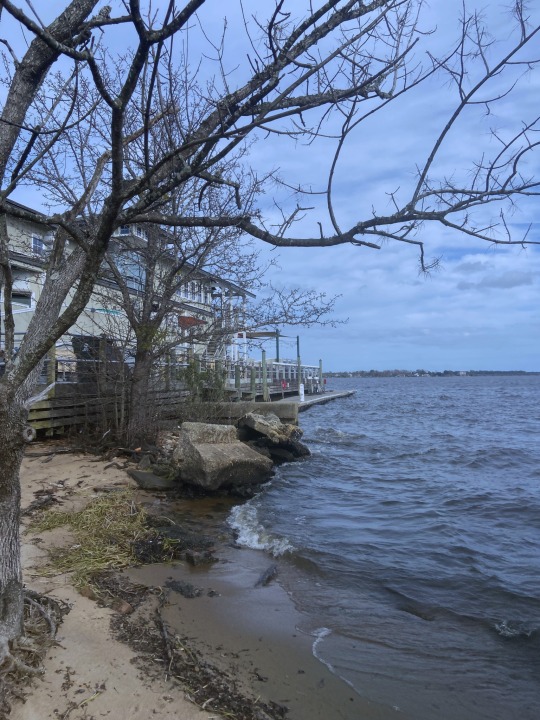
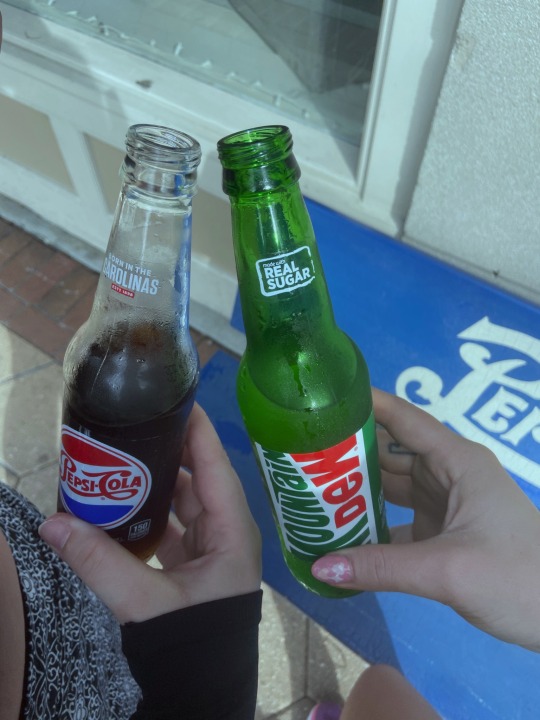
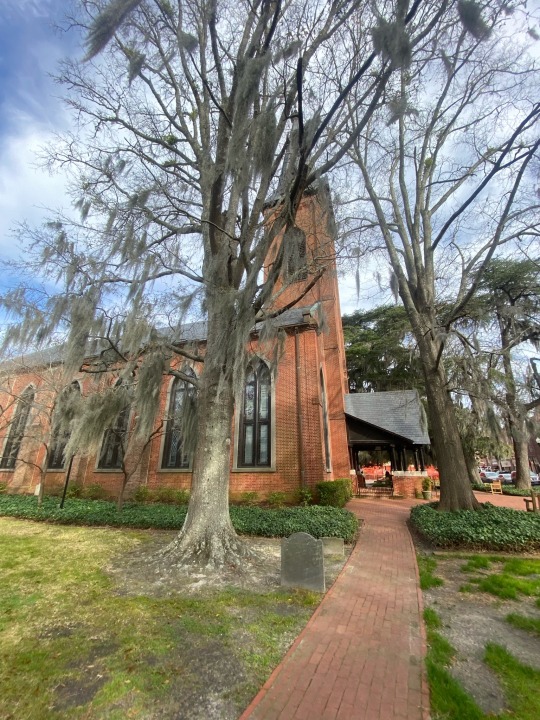
Posted up in my favorite city, New (Bear)n
@cyb3rcherry
2 notes
·
View notes
Text
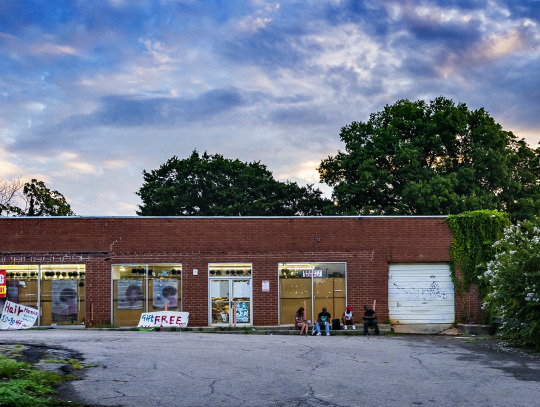
Day - 310
#smokemifyougotem#raleigh#nc#raleigh nc#north carolina#raleighnc#365#project 365#365 project#919#wigs#wigsforsale#newbern
3 notes
·
View notes
Text
A Black Man Was Elected Mayor in Rural Alabama, but the White Town Leaders Won’t Let Him Serve
For three years, Patrick Braxton says he has experienced harassment and intimidation after becoming the first Black mayor in Newbern, Alabama.
Continue reading Untitled
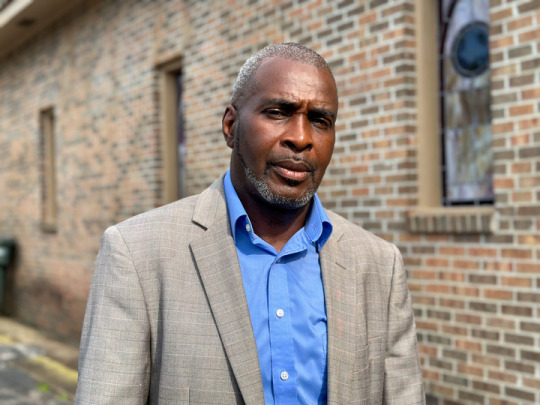
View On WordPress
0 notes
Text
Systemic Racism is alive and well, just in case you didn't know 🫥
0 notes
Text
Perceptron learning, generalization, model selection, fault tolerance, and their role in the deep learning era have broad applications in various industries, including the federal government. Here are a few ways these concepts could impact the federal government:
1. Perceptron Learning: Perceptron learning is a simple algorithm used in machine learning to classify data into two categories. In the federal government, perceptron learning could be used for various tasks, such as detecting fraud in financial transactions, predicting the likelihood of a terrorist attack, or identifying potential cybersecurity threats.
2. Generalization: In machine learning, generalization refers to the ability of a model to perform well on new, unseen data. In the federal government, generalization could be used to develop models that can accurately predict the outcome of a new policy or program.
3. Model Selection: Model selection is the process of choosing the best model from a set of candidate models. In the federal government, model selection could be used to select the best model for predicting the outcome of a policy or program, such as the impact of a new trade agreement on the economy.
4. Fault Tolerance: Fault tolerance refers to the ability of a system to continue operating despite the failure of one or more components. In the federal government, fault tolerance could be used to ensure the continuity of critical systems, such as those used for national defense or emergency response.
5. Role in the Deep Learning Era: Deep learning is a subset of machine learning that uses neural networks with multiple layers to learn from data. In the federal government, deep learning could be used for various tasks, such as image and speech recognition, natural language processing, and predictive analytics.
Overall, the concepts of perceptron learning, generalization, model selection, fault tolerance, and their role in the deep learning era could have a significant impact on the federal government. These concepts could be used to develop models and systems that can help the government make better decisions, improve efficiency, and enhance national security.
#perceptionlearning#generalization#fault tolerance#deep learning#technology#bernpirate#newbern#ai innovation#federal government#veteran#veteran technology#veteran affairs
1 note
·
View note
Photo

Just hanging out in N.C. having fun with my parents. Follow- @gamer_productions #northcarolina #newbern #newbernnc (at New Bern, North Carolina) https://www.instagram.com/p/CpRtgiqObxl/?igshid=NGJjMDIxMWI=
0 notes
Photo

Who’s going? #antiquesshowandsale #antiques #picker #newbern #newbernnc #beaufortnc (at Downtown Historical District New Bern, Nc) https://www.instagram.com/p/Cof4toFOxC_/?igshid=NGJjMDIxMWI=
0 notes
Text

Perversions of Science | Planely Possible
S1.E6 | 1997
#Elizabeth Berkley#George Newbern#Perversions of Science#Russell Mulcahy#horror#horror anthology#90s horror#practical effects#hammersmith horror#kiss me#boo#face reveal#beauty is only skin deep#transformation
1K notes
·
View notes
Text
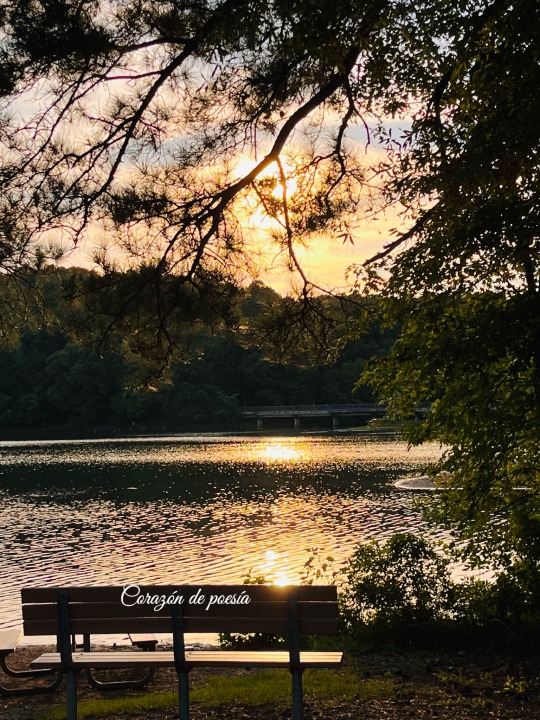
Hay bellezas que definitivamente inyectan vida, que te hace resplandecer, frente a una ocasión especial.
Es que cada día debería ser una ocasión especial para celebrar.
Y no sé cómo expresarme desde el despertar, sólo sé que vale mucho la alegría detenerse y admirar el panorama.
Hay tanta esperanza en él, que muchas veces se pierde el tiempo cuando no se logra despertar del todo. Pero cómo negarse a las maravillas de los paisajes que se nos han obsequiado durante el trayecto. No queda más que agradecer por tanto.
Explorar estos lugares se me han hecho necesidad, entrar a la profunda reflexión y es que, precisamente en el rotundo silencio, es donde más la vida te detiene a una charla contigo, me falta mucho por aprender y entender, pero estoy en el camino, escuchando todo lo que ella tenga que decirme.
Corazón de poesía©️ 30/August/22
#Prosasdemialmacautiva
2 notes
·
View notes
Text

NEWBERN, Ala. — There’s a power struggle in Newbern, Alabama, and the rural town’s first Black mayor is at war with the previous administration who he says locked him out of Town Hall.
After years of racist harassment and intimidation, Patrick Braxton is fed up, and in a federal civil rights lawsuit he is accusing town officials of conspiring to deny his civil rights and his position because of his race.
“When I first became mayor, [a white woman told me] the town was not ready for a Black mayor,” Braxton recalls.
The town is 85% Black, and 29% of Black people here live below the poverty line.
“What did she mean by the town wasn’t ready for a Black mayor? They, meaning white people?” Capital B asked.
“Yes. No change,” Braxton says.
Decades removed from a seemingly Jim Crow South, white people continue to thwart Black political progress by refusing to allow them to govern themselves or participate in the country’s democracy, several residents told Capital B. While litigation may take months or years to resolve, Braxton and community members are working to organize voter education, registration, and transportation ahead of the 2024 general election.
But the tension has been brewing for years.
Two years ago, Braxton says he was the only volunteer firefighter in his department to respond to a tree fire near a Black person’s home in the town of 275 people. As Braxton, 57, actively worked to put out the fire, he says, one of his white colleagues tried to take the keys to his fire truck to keep him from using it.
In another incident, Braxton, who was off duty at the time, overheard an emergency dispatch call for a Black woman experiencing a heart attack. He drove to the fire station to retrieve the automated external defibrillator, or AED machine, but the locks were changed, so he couldn’t get into the facility. He raced back to his house, grabbed his personal machine, and drove over to the house, but he didn’t make it in time to save her. Braxton wasn’t able to gain access to the building or equipment until the Hale County Emergency Management Agency director intervened, the lawsuit said.
“I have been on several house fires by myself,” Braxton says. “They hear the radio and wouldn’t come. I know they hear it because I called dispatch, and dispatch set the tone call three or four times for Newbern because we got a certain tone.”

Not only has he been locked out of the town hall and fought fires alone, but he’s been followed by a drone and unable to retrieve the town’s mail and financial accounts, he says. Rather than concede, Haywood “Woody” Stokes III, the former white mayor, along with his council members, reappointed themselves to their positions after ordering a special election that no one knew about.
Braxton is suing them, the People’s Bank of Greensboro, and the postmaster at the U.S. Post Office.
For at least 60 years, there’s never been an election in the town. Instead, the mantle has been treated as a “hand me down” by the small percentage of white residents, according to several residents Capital B interviewed. After being the only one to submit qualifying paperwork and statement of economic interests, Braxton became the mayor.
Stokes and his council — which consists of three white people (Gary Broussard, Jesse Leverett, Willie Tucker) and one Black person (Voncille Brown Thomas) — deny any wrongdoing in their response to the amended complaint filed on April 17. They also claim qualified immunity, which protects state and local officials from individual liability from civil lawsuits.
The attorneys for all parties, including the previous town council, the bank, and Lynn Thiebe, the postmaster at the post office, did not respond to requests for comment.
The town where voting never was
Over the past 50 years, Newbern has held a majority Black population. The town was incorporated in 1854 and became known as a farm town. The Great Depression and the mechanization of the cotton industry contributed to Newbern’s economic and population decline, according to the Encyclopedia of Alabama.

Today, across Newbern’s 1.2 square miles sits the town hall and volunteer fire department constructed by Auburn’s students, an aging library, U.S. Post Office, and Mercantile, the only store there, which Black people seldom frequent because of high prices and a lack of variety of products, Braxton says.
“They want to know why Black [people] don’t shop with them. You don’t have nothin’ the Black [people] want or need,” he says. “No gasoline. … They used to sell country-time bacon and cheese and souse meat. They stopped selling that because they say they didn’t like how it feel on their hands when they cuttin’ the meat.”
To help unify the town, Braxton began hosting annual Halloween parties for the children, and game day for the senior citizens. But his efforts haven’t been enough to stop some people from moving for better jobs, industry, and quality of life.
Residents say the white town leaders have done little to help the predominantly Black area thrive over the years. They question how the town has spent its finances, as Black residents continue to struggle. Under the American Rescue Plan Act, Newbern received $30,000, according to an estimated funding sheet by Alabama Democratic U.S. Rep. Terri Sewell, but residents say they can’t see where it has gone.
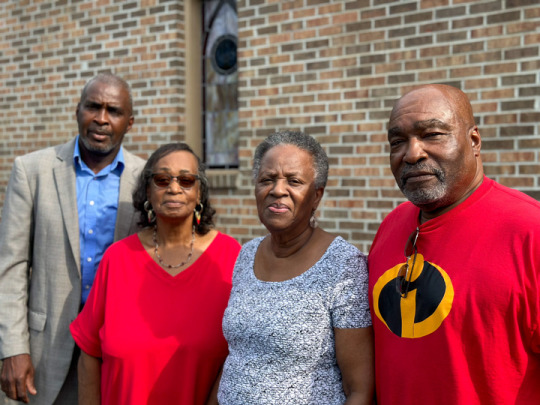
At the First Baptist Church of Newbern, Braxton, three of his selected council members — Janice Quarles, 72, Barbara Patrick, 78, and James Ballard, 76 — and the Rev. James Williams, 77, could only remember two former mayors: Robert Walthall, who served as mayor for 44 years, and Paul Owens, who served on the council for 33 years and mayor for 11.
“At one point, we didn’t even know who the mayor was,” Ballard recalls. “If you knew somebody and you was white, and your grandfather was in office when he died or got sick, he passed it on down to the grandson or son, and it’s been that way throughout the history of Newbern.”
Quarles agreed, adding: “It took me a while to know that Mr. Owens was the mayor. I just thought he was just a little man cleaning up on the side of the road, sometimes picking up paper. I didn’t know until I was told that ‘Well, he’s the mayor now.’”
Braxton mentioned he heard of a Black man named Mr. Hicks who previously sought office years ago.
“This was before my time, but I heard Mr. Hicks had won the mayor seat and they took it from him the next day [or] the next night,” Braxton said. “It was another Black guy, had won years ago, and they took it from.”
“I hadn’t heard that one,” Ballard chimes in, sitting a few seats away from Braxton.
“How does someone take the seat from him, if he won?” Capital B asked.
“The same way they’re trying to do now with Mayor Braxton,” Quarles chuckled. “Maybe at that time — I know if it was Mr. Hicks — he really had nobody else to stand up with him.”
Despite the rumor, what they did know for sure: There was never an election, and Stokes had been in office since 2008.
The costs to challenging the white power structure
After years of disinvestment, Braxton’s frustrations mounted at the height of the COVID-19 pandemic, when he says Stokes refused to commemorate state holidays or hang up American flags. When the COVID-19 pandemic hit, the majority-white council failed to provide supplies such as disinfectant, masks, and humidifiers to residents to mitigate the risks of contracting the virus.
Instead of waiting, Braxton made several trips to neighboring Greensboro, about 10 miles away, to get food and other items to distribute to Black and white residents. He also placed signs around town about vaccination. He later found his signs had been destroyed and put in “a burn pile,” he said.
After years of unmet needs of the community, Braxton decided to qualify for mayor. Only one Black person — Brown Thomas, who served with Stokes —has ever been named to the council. After Braxton told Stokes, the acting mayor, his intention to run, the conspiracy began, the lawsuit states.
According to the lawsuit, Stokes gave Braxton the wrong information on how to qualify for mayor. Braxton then consulted with the Alabama Conference of Black Mayors, and the organization told him to file his statement of candidacy and statement of the economic interests with the circuit clerk of Hale County and online with the state, the lawsuit states. Vickie Moore, the organization’s executive director, said it also guided Braxton on how to prepare for his first meeting and other mayoral duties.
Moore, an Alabama native and former mayor of Slocomb, said she has never heard of other cases across the state where elected officials who have never been elected are able to serve. This case with Braxton is “racism,” she said.
“The true value of a person can’t be judged by the color of their skin, and that’s what’s happening in this case here, and it’s the worst racism I’ve ever seen,” Moore said. “We have fought so hard for simple rights. It’s one of the most discouraging but encouraging things because it encourages us to continue to move forward … and continue to fight.”
Political and legal experts say what’s happening in Newbern is rare, but the tactics to suppress Black power aren’t, especially across the South. From tampering with ballot boxes to restricting reading material, “the South has been resistant to all types of changes” said Emmitt Riley III, associate professor of political science and Africana Studies at The University of the South.
“This is a clear case of white [people] attempting to seize and maintain political power in the face of someone who went through the appropriate steps to qualify and to run for office and by default wins because no one else qualified,” Riley added. “This raises a number of questions about democracy and a free and fair system of governance.”
Riley mentioned a different, but similar case in rural Greenwood, Mississippi. Sheriel Perkins, a longtime City Council member, became the first Black female mayor in 2006, serving for only two years. She ran again in 2013 and lost by 206 votes to incumbent Carolyn McAdams, who is white. Perkins contested the results, alleging voter fraud. White people allegedly paid other white people to live in the city in order to participate in the election and cast a legal vote, Riley said. In that case, the state Supreme Court dismissed the case and “found Perkins presented no evidence” that anyone voted illegally in a precinct, but rather it was the election materials that ended up in the wrong precincts.
“It was also on record that one white woman got on the witness stand and said, ‘I came back to vote because I was contacted to vote by X person.’ I think you see these tactics happening all across the South in local elections, in particular,” Riley said. “It becomes really difficult for people to really litigate these cases because in many cases it goes before the state courts, and state courts have not been really welcoming to overturning elections and ordering new elections.”
Another example: Camilla, Georgia.
In 2015, Rufus Davis was elected as the first Black male mayor of rural, predominantly Black Camilla. In 2017, the six-person City Council — half Black and half white — voted to deny him a set of keys to City Hall, which includes his office. Davis claimed the white city manager, Bennett Adams, had been keeping him from carrying out his mayoral duties.
The next year, Davis, along with Black City Council member Venterra Pollard, boycotted the city’s meetings because of “discrimination within the city government,” he told a local news outlet. Some of the claims included the absence of Black officers in the police department, and the city’s segregated cemetery, where Black people cannot be buried next to white people. (The wire fence that divided the cemetery was taken down in 2018). In 2018, some citizens of the small town of about 5,000 people wanted to remove Davis from office and circulated a petition that garnered about 200 signatures. In 2019, he did not seek re-election for office.
“You’re not the mayor”
After being the only person to qualify and submit proper paperwork for any municipal office, Braxton became mayor-elect and the first Black mayor in Newbern’s history on July 22, 2020.
Following the announcement, Braxton appointed members to join his council, consistent with the practice of previous leadership. He asked both white and Black people to serve, he said, but the white people told him they didn’t want to get involved.
The next month, Stokes and the former council members, Broussard, Leverett, Brown Thomas, and Tucker, called a secret meeting to adopt an ordinance to conduct a special election on Oct. 6 because they “allegedly forgot to qualify as candidates,” according to the lawsuit, which also alleges the meeting was not publicized. The defendants deny this claim, but admit to filing statements of candidacy to be elected at the special election, according to their response to an amended complaint filed on their behalf.
Because Stokes and his council were the only ones to qualify for the Oct. 6 election, they reappointed themselves as the town council. On Nov. 2, 2020, Braxton and his council members were sworn into office and filed an oath of office with the county probate judge’s office. Ten days later, the city attorney’s office executed an oath of office for Stokes and his council.
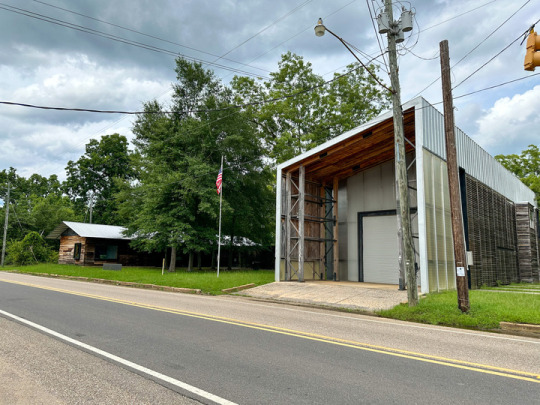
After Braxton held his first town meeting in November, Stokes changed the locks to Town Hall to keep him and his council from accessing the building. For months, the two went back and forth on changing the locks until Braxton could no longer gain access. At some point, Braxton says he discovered all official town records had been removed or destroyed, except for a few boxes containing meeting minutes and other documents.
Braxton also was prevented from accessing the town’s financial records with the People’s Bank of Greensboro and the city clerk, and obtaining mail from the town’s post office. At every turn, he was met with a familiar answer: “You’re not the mayor.” Separately, he’s had drones following him to his home and mother’s home and had a white guy almost run him off the road, he says.
Braxton asserts he’s experienced these levels of harassment and intimidation to keep him from being the mayor, he said.
“Not having the Lord on your side, you woulda’ gave up,” he told Capital B.
‘Ready to fire away’
In the midst of the obstacles, Braxton kept pushing. He partnered with LaQuenna Lewis, founder of Love Is What Love Does, a Selma-based nonprofit focused on enriching the lives of disadvantaged people in Dallas, Perry, and Hale counties through such means as food distribution, youth programming, and help with utility bills. While meeting with Braxton, Lewis learned more about his case and became an investigator with her friend Leslie Sebastian, a former advocacy attorney based in California.
The three began reviewing thousands of documents from the few boxes Braxton found in Town Hall, reaching out to several lawyers and state lawmakers such as Sen. Bobby Singleton and organizations such as the Southern Poverty Law Center. No one wanted to help.
When the white residents learned Lewis was helping Braxton, she, too, began receiving threats early last year. She received handwritten notes in the mail with swastikas and derogatory names such as the n-word and b-word. One of theletters had a drawing of her and Braxton being lynched.
Another letter said they had been watching her at the food distribution site and hoped she and Braxton died. They also made reference to her children, she said. Lewis provided photos of the letters, but Capital B will not publish them. In October, Lewis and her children found their house burned to the ground. The cause was undetermined, but she thinks it may have been connected.
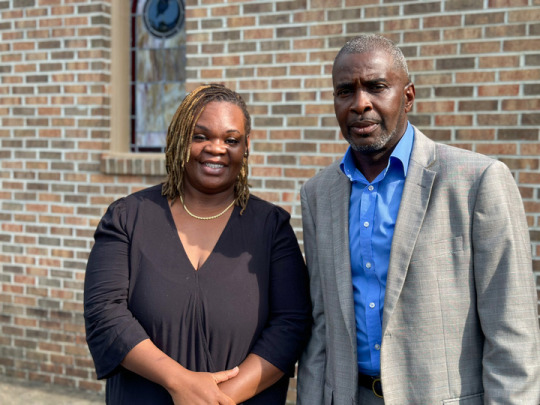
Lewis, Sebastian, and Braxton continued to look for attorneys that would take the case. Braxton filed a complaint in Alabama’s circuit court last November, but his attorney at the time stopped answering his calls. In January, they found a new attorney, Richard Rouco, who filed an amended complaint in federal court.
“He went through a total of five attorneys prior to me meeting them last year, and they pretty much took his money. We ran into some big law firms who were supposed to help and they kind of misled him,” Lewis says.
Right now, the lawsuit is in the early stages, Rouco says, and the two central issues of the case center on whether the previous council with Stokes were elected as they claim and if they gave proper notice.
Braxton and his team say they are committed to still doing the work in light of the lawsuit. Despite the obstacles, Braxton is running for mayor again in 2025. Through AlabamaLove.org, the group is raising money to provide voter education and registration, and address food security and youth programming. Additionally, they all hope they can finally bring their vision of a new Newbern to life.
For Braxton, it’s bringing grocery and convenience stores to the town. Quarles wants an educational and recreational center for children. Williams, the First Baptist Church minister, wants to build partnerships to secure grants in hopes of getting internet and more stores.
“I believe we done put a spark to the rocket, and it’s going [to get ready] to fire away,” Williams says at his church. “This rocket ready to fire away, and it’s been hovering too long.”
Correction: In Newbern, Alabama, 29% of the Black population lives below the poverty line. An earlier version of this story misstated the percentage
#alabama#Newbern Alabama#A Black Man Was Elected Mayor in Rural Alabama#but the White Town Leaders Won’t Let Him Serve#Patrick Braxton#AlabamaLove.org#black lives matter
372 notes
·
View notes
Text
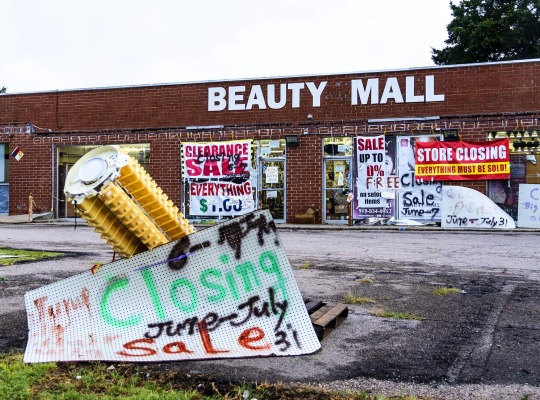
Day - 271
#raleigh#nc#raleigh nc#north carolina#raleighnc#project 365#365 project#365project#revisit#wigs#beauty supply#beautymall#beautiful#beautifuldestinations#365#newbern
6 notes
·
View notes
Text
White Minority Locks Out First Black Mayor of Newbern, Alabama
355 notes
·
View notes